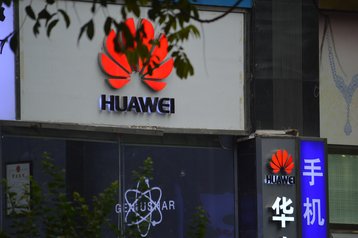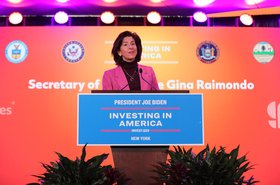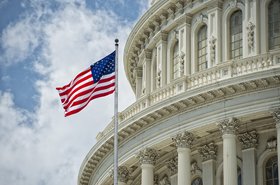Chinese telecoms giant Huawei saw its biggest-ever revenue decline as US sanctions cut into its global sales efforts.
Put on a trade blacklist in 2019, the company has struggled to adapt, but said that it had set its strategic goals for the next five years and pointed to areas it was still growing in.
"Our aim is to survive, and to do so sustainably," said Eric Xu, Huawei's rotating chairman, in a statement as revenues fell 29 percent to CNY320.4 ($49.56bn). An internal memo from founder and CEO Ren Zhengfei seen by Reuters said that the company was trying to move into areas that were less at risk from US pressure.
Sanctions have stopped Huawei from being able to sell to US markets, and, more importantly, severely hampered the company's ability to design or procure semiconductors.
It has also cut the company off from US partners, including Google and its Android mobile operating system - something that has helped significantly diminish its smartphone division.
In late 2020, it sold its Honor phone brand to Shenzhen Zhixin New Information Technology to ensure its survival.
Telecoms revenue fell 14 percent, but the company said this was not all down to sanctions - it also pointed to the slowdown in China's 5G rollout.
Huawei's enterprise business group was a rare bright spot, growing 18 percent due to Covid-19 related IT demand. Equally, its Chinese-mainland cloud business grew rapidly, with Canalys reporting a 20 percent market share.
But the company still faces continued pressure from the US.
Last week, US national security adviser Jake Sullivan and Brazilian president Jair Bolsonaro met to discuss Brazil's use of Huawei in its 5G network.
Back in October 2020, the Trump Administration tried dangling $1 billion in financing for Brazil to drop Huawei and the also-sanctioned ZTE.
But that has yet to have borne fruit, with the Brazilian regulator Anatel approved rules for a 5G spectrum auction without excluding Huawei in February.
In his meeting, Sullivan pushed for Brazil to embrace OpenRAN - Radio Access Networks that are not proprietary and closed, allowing telcos to pick the best equipment fro different parts of the network chain.
Huawei's forced retreat in countries like the UK, US, and Australia, has left the door open for more OpenRAN deployments, DCD found. But the still-nascent concept requires government support to become a success.
Following the meeting, the Chinese Embassy in Brazil decried the meeting, saying US attacks on Chinese companies disregard facts.
The embassy pointed to Huawei's investment in Brazil, and said that the US was the "number one hacking empire."
A spokesperson added: "We believe that Brazil will provide open, fair and non-discriminatory market rules for companies from all countries, including China, and continue to create a good business environment for China-Brazil economic and trade cooperation."





